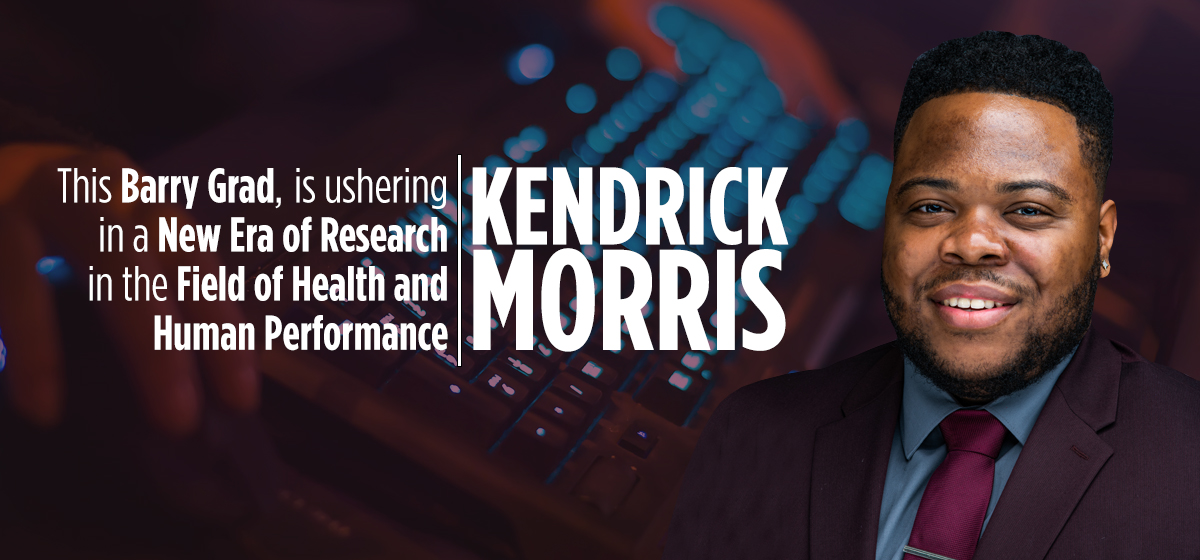The first day Kendrick Morris stepped onto Barry’s campus, back in 2018, the Human Performance and Wellness master’s student wasn’t entirely sure what to expect. He had earned his bachelor’s degree in Kinesiology and Exercise Science at San Diego State University, and knew Barry’s Sport & Exercise Sciences programs promised smaller classes and direct mentorship from faculty. “Coming from a larger institution, I was intrigued by the smaller sized cohort,” he says. “I believed that I would greatly benefit from accountability of my peers as well as personal relationships from my professors.”
As it turned out, he would begin forging those personal relationships that very day. Morris’s future mentor, Professor Zacharias Papadakis, welcomed him into his office and helped solidify the new student’s plans for his Barry education. “We mapped what my time at Barry would look like,” Morris says. From then on, Dr. Papadakis provided hands-on guidance, eventually leading Morris’s thesis committee and inspiring him to pursue his interest in the burgeoning arena of eSports, otherwise known as competitive gaming.
Working alongside Dr. Papadakis, as well as professors Boiangin and Freer, Morris began researching the performance development of eSports players. He was particularly interested in understanding how eSports could be valued within the greater context of sports, a question that evolved into his thesis project and led him to the 2020 Texas American College of Sports Medicine Conference, where he showcased his research as a student presenter. When Morris graduated later that year, his work with his mentors didn’t stop. “Currently, we are in the process of completing research and adjacent publications concerning the legitimacy of eSports,” he says.
Now a Ph.D. candidate at Concordia University, Morris is continuing to delve deeper into the world of eSports. He credits his faculty mentors with helping him recognize the wealth of research opportunities in the field. “Dr. Papadakis, Dr. Boiangin, Dr. Freer, and I have found an interesting niche concerning the physiological and sensorimotor profile of eSports athletes, which I believe can be explored to heighten their capacities as competitors,” Morris says. “Research in this field is in its infancy, and I would love to be one of its pioneers.”
While he never expected to meet his longtime mentor on his first day at a new school, Morris is grateful for that first encounter and the impact it has had on his career and personal success. “Dr. Papadakis has been CRITICAL to my maturation, both as a human and as a scholar,” he says. “He challenged me from day one to pursue writing a thesis and then made himself a genuine resource to ensure that I could tackle the task. I appreciate his guidance, support, and reassurance throughout my tenure.”
As he pursues his Ph.D., Morris works full time teaching Miami-Dade high schoolers, a job he also held while attending Barry. His passion for guiding new generations is mirrored in his experience with his own mentors. Ultimately, he wants his growing expertise in human performance and wellness to help support eSport competitors. He says that his time at Barry helped make this vision possible. “I believe I have been equipped to educate and advocate from perspectives of wellness to the persons that I plan to serve.”

